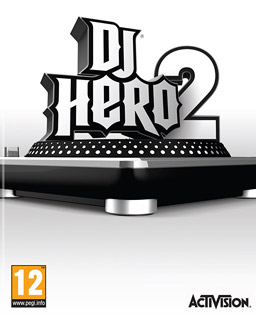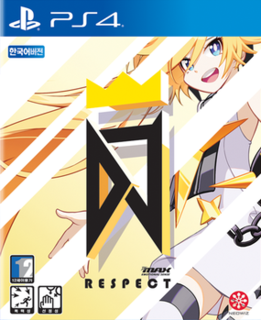 W
WBeaterator is a music mixer released in September 2009 by Rockstar Games for the PlayStation Portable, and PlayStation 3 and in December 2009 for iOS. Beaterator was developed by Rockstar Leeds in collaboration with Timbaland.
 W
WBeatmania (ビートマニア) is a rhythm video game developed and distributed by Japanese game developer Konami and first released in December 1997. It contributed largely to the boom of music games in 1998, and the series expanded not only with arcade sequels, but also moved to home consoles and other portable devices, achieving a million unit sales. The Bemani line of music games from Konami is named after the series, was first adopted in the arcade release of Beatmania 3rdMix and kept ever since. The series came to an end with the last game being Beatmania The Final, released in 2002.
 W
WBeatmania IIDX is a series of rhythm video games, that was first introduced by Konami in Japan on February 26, 1999. IIDX has since spawned 30 arcade releases and 14 console releases on the Sony PlayStation 2. It is the sequel to the beatmania game series, and part of the Bemani line of music games. A PC release titled beatmania IIDX INFINITAS has been released, beginning alpha testing in September 2015, and was heavily updated to a new version in 2020.
 W
WBeatmania IIDX 23: Copula is the 23rd installment of the Beatmania IIDX series. The first location test was held at the Tokyo Lesiure Land #2 location in Akihabara, Japan from July 10 through 12th 2015. It was released on November 11, 2015. This is Last Beatmania Series made by Konami Digital Entertainment before Konami Amusement.
 W
WDaigasso! Band Brothers is a music video game published and developed by Nintendo for the Nintendo DS handheld game console. It was released in Japan on December 2, 2004 as a launch game for the Nintendo DS. The game features multiple songs, which include classical music, television themes, and video game music. The game is controlled using both the buttons on the DS as well as its touch screen in certain portions. It uses a variety of different instruments, which are combined selectively in order to compose a song. Besides the primary mode, players may play together, each one playing a different instrument in the song. Players may also compose their own songs. It was to be released in the United States as Jam with the Band, but was never released nor formally cancelled. It has a sequel titled Jam with the Band, which was released in Japan in 2008 and in Europe in 2010.
 W
WDJ Hero is a music video game, developed by FreeStyleGames and published by Activision as a rhythm game spin-off of the Guitar Hero franchise. It was released on October 27, 2009 in North America and on October 29, 2009 in Europe. The game is based on turntablism, the act of creating a new musical work from one or more previously recorded songs using record players and sound effect generators, and features 94 remixes of two different songs from a selection of over 100 different songs across numerous genres.
 W
WDJ Hero 2 is a rhythm video game and a sequel to DJ Hero, a spinoff of the Guitar Hero series. DJ Hero 2 uses a special turntable-controller, the same as introduced in DJ Hero, to simulate turntablism, the act of creating a new musical work from one or more previously recorded songs using record players and sound effect generators. The game is developed by FreeStyleGames and is published by Activision, and was released worldwide in October 2010.
 W
WDJ Max Fever is a music game for the PlayStation Portable developed by Pentavision and PM Studios. It was released in 2009. Although the franchise has made several appearances in Asia, DJ Max Fever is the first DJMax released in the United States and Europe. The game is a compilation of DJMax Portable and DJMax Portable 2 along with additional features. By decision of PM Studios, it is the only title in the DJMax series with a space between words "DJ" and "Max". A digital version of the game was released in 2010 on PlayStation Network, but later removed due to licensing expiration.
 W
WDJMax is an action-rhythm video game series created by Neowiz MUCA. Games feature mostly experimental music and visual art from Korean DJs, artists and composers. Known South Korean experimental group Clazziquai Project has also made songs for the series. There are also a few Japanese composers who have given significant contributions to the series.
 W
WDJMax Portable is a music video game developed by Korean game maker Pentavision for the PlayStation Portable. It is a sequel to DJMax Online, a web-based music mixing game for Windows.
 W
WDJMax Portable 2 is a music video game published and developed by Pentavision, for the PlayStation Portable which was released on March 30, 2007. This is the second installment of the DJMax Portable series. While the first installment, DJMax Portable, never reached distribution outside of South Korea until the release of DMPi, DJMax Portable 2 was released in Japan along with English packaging and manuals.
 W
WDJMax Portable 3 is a music game for the PlayStation Portable published and developed by Pentavision in South Korea, and is a sequel to the earlier DJMax Portable games. DJMax Portable 3 was announced shortly after DJMax Technika 2 was announced. The official trailers from PM Studios and Pentavision quickly followed. It is the seventh installment of the game for the PlayStation Portable, and regarded as the actual sequel to DJMax Portable 2 since Clazziquai and Black Square branched out for the METRO Project in 2008, Fever for the North American release and the Technika series globally.
 W
WDJMax Portable Black Square is a music game for the PlayStation Portable developed by South Korean developer Pentavision released on December 24, 2008. This is the fourth major game of the DJMax series released for the PSP. The game includes various enhancements and new features built on from DJMax Portable 2 and DJMax Portable Clazziquai Edition. The original aim was to launch the game in November, however due to numerous bugs or piracy issues with DJMax Portable Clazziquai Edition, the release of DJMax Portable Black Square was postponed. The game was released in Japan on March 22, 2012, it removes the autocorrect feature and Japanese is the only language option available, yet most of the game retains English titles for songs, artwork and so on.
 W
WDJMax Portable Clazziquai Edition is a music video game published and developed by Pentavision in South Korea for the PlayStation Portable released on October 20, 2008. This is the third title for the PlayStation Portable from in the DJMax Portable series after DJMax Portable 2. The game features songs from the Korean band Clazziquai.
 W
WDJMax Portable: Hot Tunes is an action-rhythm video game for the PlayStation Portable published and developed by Pentavision. It is a compilation of the DJMax Portable and DJMax Portable 2 games. The game is intended to be beginner-friendly and Pentavision stated that players who have never played the DJMax series would find it easy to play. It also has been specifically designed for a Japanese audience and precautions have been taken in avoiding translation errors. It is the second DJMax game to be formally released in Japan. Hot Tunes is the sixth installment of the DJMax series for the PlayStation Portable platform. Currently only a UMD distribution for the game is available. A total of 2000 limited edition sets was made available. Each package included a wooden case, calendar, original soundtrack and piano collection, and eight mini-posters.
 W
WDJMax Respect is a rhythm game developed by Rocky Studio and Neowiz MUCA and published by Neowiz Games. It was released for the PlayStation 4 in 2017, and for Microsoft Windows in 2020. In Japan, the game was published by Arc System Works. It is a reboot of and the latest installment in the DJMax rhythm game series.
 W
WDJMax Trilogy is a rhythm action game with five difficulty modes ranging from limited four-key gameplay to a challenging eight-key setup. As notes are played with perfect accuracy, a "fever gauge" will be charged. When it is fully charged, Fever can be activated. Fever acts as a multiplier to score and it varies between x2 and x5.
 W
WeJay is a series of musical arrangement software and games, primarily for Microsoft Windows. The first edition, Dance eJay, was released in 1997. It supports eight tracks of audio and, as with its successors, permits the arrangement of sound bites by a drag-and-drop interface. Since the original Dance eJay, there have been many releases catering to different music genres and users, including techno and hip-hop, as well as a PlayStation 2 edition.
 W
WEZ2DJ is a series of music video games created by the South Korean company AmuseWorld. The basic manner of gameplay is similar as in the Konami's Beatmania series; however, as the franchise continues, it differs in style of music and gameplay. The first edition of EZ2DJ was introduced in 1999 and last version, EZ2DJ Azure Expression ~Integral Composition~ was released in June 2012. Afterwards, following the lawsuit against Konami, the rights for franchise were given to Square Pixels company, and development continued under the title of EZ2AC, with latest version being EZ2AC Final EX, which was released in August 2020.
 W
WScratch: The Ultimate DJ was a music video game announced by Genius Products in 2008. Similarly to Konami's Beatmania series, it would have employed a specialized turntable controller, which would have allowed the player to follow along to the rhythm game while simulating common DJ techniques, such as scratching.